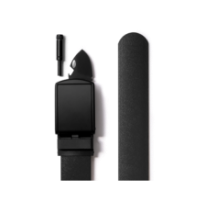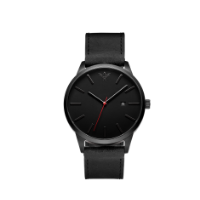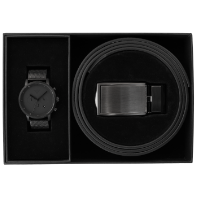THE LOOP
Seasons
The signs that spring is coming are everywhere, trees blooming, bird migration, and swimsuits at Target. If you’ve been having the urge to come out of hibernation and gorge on berries don’t worry, it just natures way of saying good morning. Spring is a beautiful time of year in Sacramento and I am certainly looking forward to it.
The inspiration for this post comes from a series I’ve been watching: One Strange Rock on Netflix. It's a great show if you're into Planet Earth-type documentaries. What makes it unique are two big factors. Firstly it explains Earth’s systems from astronauts’ perspective. Secondly it really highlights how EVERYTHING is connected.
You may know that the reason our planet even has seasons is because of the angle of the Earth’s axis. Without the angle, half the planet would be covered in ice (like the polar caps) and the other half would be incredibly hot (like much of the equator). Most life on Earth does the best in the in-between, more temperate zones. As the Earth rotates the angled axis gives the planet’s atmosphere a gentle stir.
One marketer’s thoughts on seasons:
Will Smith (One Strange Rock’s narrator) will tell you about how seasonality has huge impacts on the planet’s landscapes. I would argue that it also affects most businesses. Retail is certainly one of them. Think about why you’re buying what you buy for the next couple of months. Do you start getting more vegetables as what is seasonally available changes? Are you getting some outdoor gear in preparation for some summer adventures? Do you buy less tea now that there are less rainy days? Do you spend more or less money in general? The fact is we are creatures of habits and very responsive to seasonal messages marketers send us. We build routines around season because we are biologically wired to. Simply being aware of this can help curb the need to splurge on spring sales. How many sundresses do I need anyway?
Tim Duncan life lessons
Slow Down If You Eat Too Fast!
We’re a rushed, distracted, and too-busy to take time to savor our food or sometimes even to chew it properly. Most people eat too fast, and, as a result, they take in too many calories before they realize they've eaten enough.
It takes approximately 20 minutes from the time you start eating for your brain to send out signals of fullness. Leisurely eating allows ample time to trigger the signal from your brain that you are full and feeling full translates into eating less.
The benefits of slow eating include better digestion, better hydration, easier weight loss or maintenance, and greater satisfaction with our meals.
Here are few simple tips for slow eating.
- Sit down to eat in a calm environment with minimal distractions. Don’t eat while driving, while watching TV, while texting, etc. Pay attention to your food.
- Choose high-fiber foods that take more time to chew, such as fresh fruits and vegetables.
- Put down your utensils between bites. Take a moment. Breathe. If you’re eating with other people, enjoy making witty conversation for a few minutes.
- Try setting a minimum number of chews per bite. This will feel strange at first, but give it a try and see what you discover.
- Use smaller plates or different utensils (such as chopsticks).
- Find another slow eater and pace yourselves to them.
- Set aside time to eat – at least 20-30 minutes for each meal, and preferably even longer at dinner. Don’t just eat “whenever you get around to it” or treat it as an inconvenience. You’re fueling your body and maybe spending quality time with friends and family. That’s important. It deserves an appointment.












